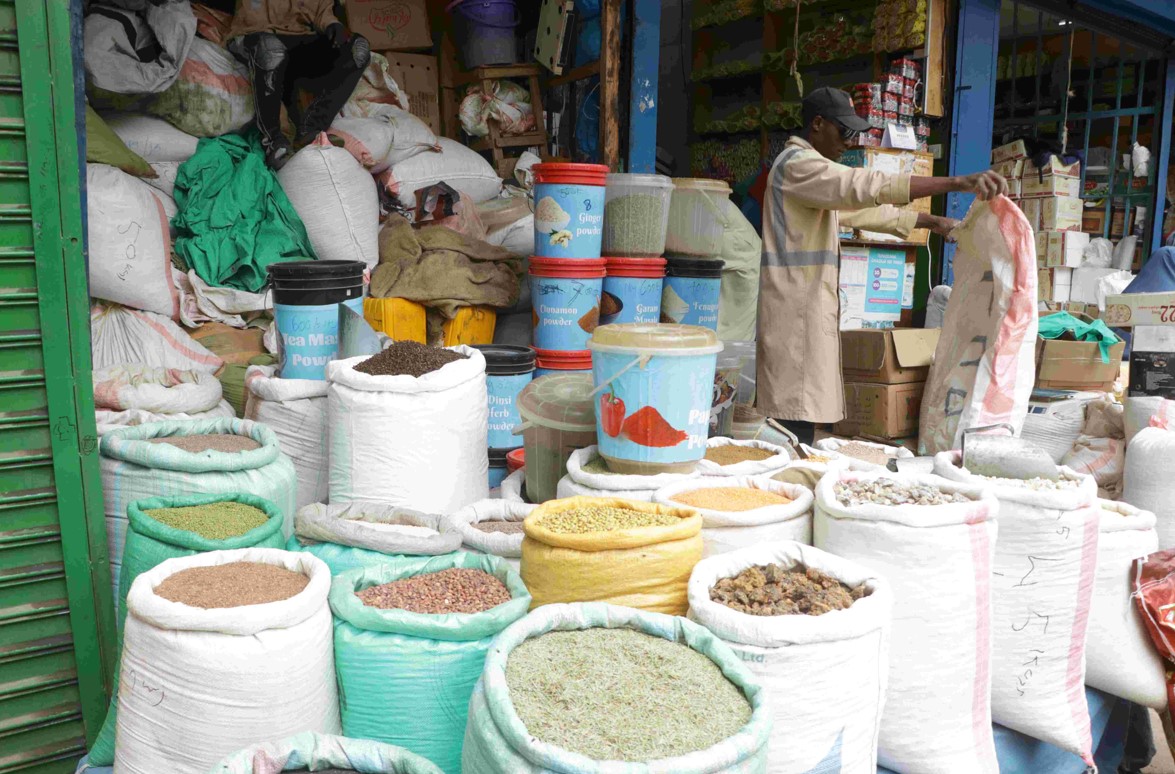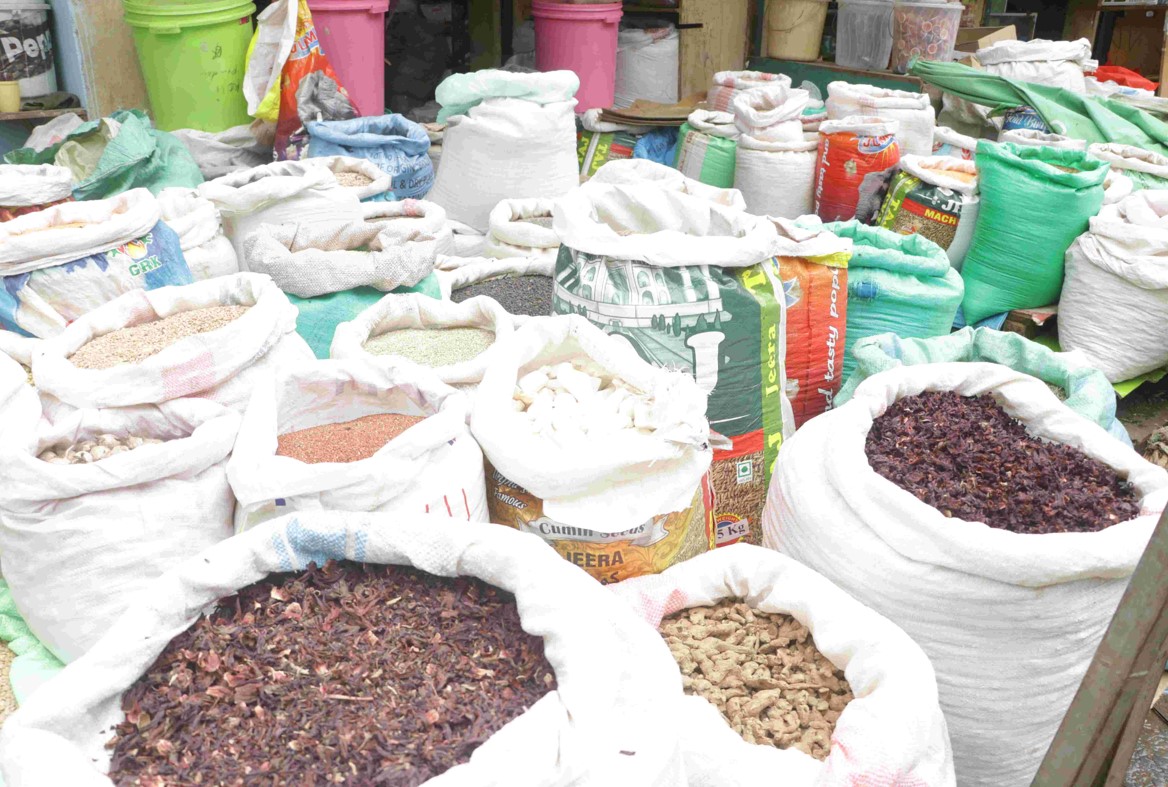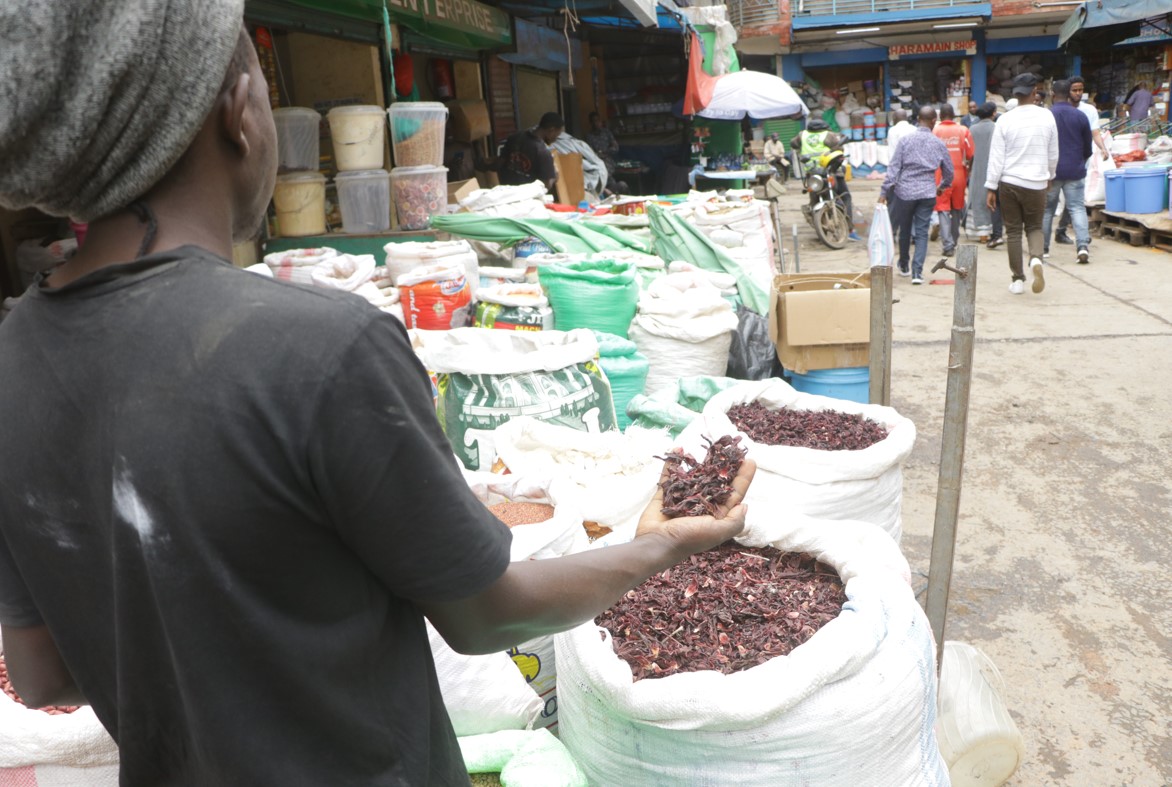Eastleigh's original spices attract locals, tourists with enticing flavours

With the diverse Somali culture in Eastleigh, access to a variety of spices has broadened, with people from various backgrounds now getting a taste of authentic flavours.
On various streets and in malls around Nairobi’s Eastleigh business centre, a delightful aroma of spices fills the air, drawing traders and buyers alike.
Traditionally, spices were closely associated with specific cultures, with other people struggling to access them.
More To Read
However, with the diverse Somali culture in Eastleigh, access to a variety of spices has broadened, with people from various backgrounds now getting a taste of authentic flavours.
Although some cultures have yet to fully embrace the versatile use of these spices, Eastleigh's tea masala, in particular, remains a popular attraction for both locals and visitors.
Imported from various countries, the spices available in Eastleigh contribute to its vibrant culinary scene, enriching the flavours and experiences of those who indulge in its offerings.
In this marketplace, spices are available in both large and small quantities, offered at wholesale prices to accommodate both sellers and those purchasing for personal use.
Over the past seven years, Sadam Ahmed has established a stronghold in the spice trade around Yare Plaza, serving a diverse clientele.
"We cater to a wide range of customers, some placing orders while others visit us directly," said Sadam.
The customer base comprises both local Somalis and individuals from other backgrounds attracted by the authentic spices.
Sadam said they buy spices from various regions worldwide, including Tanzania, Ethiopia, India, and Somalia to satisfy the demand among Kenyan consumers.
 An array of spices displayed at a shop in Eastleigh. The spices are available in both large and small quantities, offered at wholesale prices to accommodate both sellers and those purchasing for personal use. (Photo: Justine Ondieki)
An array of spices displayed at a shop in Eastleigh. The spices are available in both large and small quantities, offered at wholesale prices to accommodate both sellers and those purchasing for personal use. (Photo: Justine Ondieki)
"Our spices are authentic and completely natural, devoid of any additives. We offer both ground and whole spices to accommodate our customers' preferences," Sadam said.
Resell spices
He noted that many customers from Nairobi purchase spices and resell them in Nyamakima and other CBD markets.
"Our diverse range of spices sets us apart. Whatever variety you seek, you'll find it in Eastleigh markets," Sadam said.
Beyond spices, the Eastleigh market offers other culinary attractions like sesame oil and cereals.
"Our spices have a long shelf life if stored properly, ensuring they remain fresh," Sadam said.
But he said spices like onion and garlic powder are susceptible to moisture and should be handled with care.
Nathaniel Maina, who has been selling cereals and spices for the past five years, has been procuring his spice inventory from a particular shop in Eastleigh.
He revealed that his continued loyalty stemmed from the affordability and consistent quality of the spices.
“My customers are usually very satisfied, often returning and even bringing their friends along. As a result, I've remained loyal to one supplier because I trust the quality they provide,” said Maina.
Despite the presence of other potential suppliers, Maina values the stability of having a loyal clientele.
 An array of spices displayed at a shop in Eastleigh. (Photo: Justine Ondieki)
An array of spices displayed at a shop in Eastleigh. (Photo: Justine Ondieki)
"Having consistent customers is beneficial. As long as the quality is good, they remain loyal,” stated Maina.
Aromatic treasures
In Eastleigh's spice market, a diverse array of aromatic treasures awaits potential customers, each representing a different aspect of culinary delight.
Here, you'll find various categories of spices, from those used in tea, known locally as tea masala or chai spices, to the essential blend for pilau dishes and medicinal wonders like turmeric (locally known as mdalasini ya manjano) and ginger (tangawizi).
Tea spices form the foundation of Kenya's tea culture. They include cardamom (iliki), cinnamon (mdalasini), cloves (karafuu), and nutmeg (mzabibu), each adding its unique flavour to the brew.
Pilau masala, essential for East African cuisine, combines cumin (zira), coriander (dhania), cloves, cardamom, cinnamon, and black pepper (pilipili manga). Together, these spices create the distinctive taste of pilau dishes.
Medicinal spices, like turmeric and ginger, have anti-inflammatory properties and aid digestion. Garlic (kitunguu saumu) and black pepper also contribute to good health, making them valuable additions to any diet.
Eunice Achieng is a regular buyer of spices, visiting shops weekly to fill orders for a client who owns a restaurant.
"My client insists on using fresh, whole spices, believing they yield superior flavours when ground,” she said.
Initially, Achieng used to purchase spices in town until a friend recommended Eastleigh. Having been in the spice business for the past two years, she expressed her fondness for shopping in Eastleigh.
"I enjoy shopping here because I can find all the spices I need under one roof. I no longer need to wander around, and if a particular vendor doesn't have what I'm looking for, they quickly source it from a neighbouring vendor at a reasonable price," said Achieng.
Eastleigh's spice market provides both affordability and quality, enhancing communities with each flavour sold.
Top Stories Today













































